#Briz says stuff
Explore tagged Tumblr posts
Text
Hi, Hello, Welcome to the utter chaos that is my blog-! [EXPLOSION IN DISTANCE]. Ignore that, that’s normal!
I’m Briz- or in recent depictions- Algol!!! a random box filled with well- [Muffled sounds of cosmic horror]
WE’LL GET TO THAT LATER-
You’ll see me interact with a WIDDEEE range of people-!
Why?-BECAUSE WHY NOT!? BECAUSE THEY ARE COOL AND SILLY AND YA KNOW WHAT- IMA ENSUE,CHAOS AND TOMFUCKERY IN THESE PARTS-!? AND I LOVE MY FUCKING FRIENDS ENOUGH TO DRAG THEM DOWN WITH ME!?!
You’ll also see a range of characters I’ll play as well as draw [Algol(my sona), and many, many more-!]
That and random reblogs of things I like!! Like Good Omens, Portal 2, and a lot of other stuff.
Overall, enjoy my silly blog and the random chaotic shenanigans!
#Briz says stuff#ooga booga#EDITED#briz master post#briz says a thing#Juniper J. Scraper#Maelstrom The Chaos Enity#📦#📦 💫
40 notes
·
View notes
Video
youtube
“In an extreme view, the world can be seen as only connections, nothing else. We think of a dictionary as the repository of meaning, but it defines words only in terms of other words. I liked the idea that a piece of information is really defined only by what it's related to, and how it's related. There really is little else to meaning. The structure is everything. There are billions of neurons in our brains, but what are neurons? Just cells. The brain has no knowledge until connections are made between neurons. All that we know, all that we are, comes from the way our neurons are connected”
— Tim Berners-Lee, Weaving the Web
Nick Briz on the the Philosophy of the Early Internet Pioneers. Source
In order to understand why the web browser is the Internet's gift to artists, by which I mean in order for us to really take advantage of what it's got to offer us, we need to understand where browsers came from and the deeply interlinked ideas of all the radical thinkers who influenced it.
Meanwhile a team of some of my favorite computer people of all time, known as a learning research group, formed at Xerox PARC: Alan Kay, Adele Goldberg, Dan Ingalls, and others envisioned a world where computers would be very personal machines that you could carry around in your bookbag. These Dynabooks as they called them wouldn't be your typical terminal; it would be a dynamic medium for creative thought. it would be graphical, you'd use a mouse, you didn't have to know how to program or even what you wanted to do with the computer because the system itself would be a place to learn and explore.
The Xerox PARC folks didn't just write about these ideas; they actually produced that system, and called it Small Talk. One of the first object oriented programming languages and the first real graphical user interface:
“In terms of techniques for accessing information a key presentation technique we use is to divide up the display screen into rectangular areas or parts, that people like to call windows, and so their windows onto information.The primary kind of window that we like to talk about is one that we call browser; we do this because too often we think of computers as being very precise machines in which you have to precisely say ‘I want this’ or that’ and you get it back, exactly what you ask for. But the nice quality of a library is that you can walk around looking for something specific but as you're doing it you find other things. That's what browsing was all about.”
-Adele Goldberg
The browser was a curiosity driven interface: multiple windows, copy paste, small incremental changes; these are all common place now, but it wasn't how people use computers back then.
One day though she warned her superiors that it would be a bad idea, Adele Goldberg was forced to share all the details about the new system with a now-infamous visitor to Xerox PARC; Steve Jobs, who would later quickly borrow many of their new concepts, as would Bill Gates, to make the first commercially available home computers with graphical user interfaces. They of course only borrowed all the ideas which would help them brand the computer as a friendly sort of household appliance for consumers, but they would leave out some of the most important ideas; like the fact that the graphical user interface wasn't meant to obfuscate code,to hide it from the user like it was used in Windows and Mac. It was meant to augment the code, to help you program: Small Talk was first and foremost a creative coding environment.
Apple and Windows would also lose sight of the new meta media concept; instead they would generally imitate old media: movies music and books would eventually just become movs, mp3s, and PDFs on the computer, not all that different from their analog counterparts. In contrast, to Kay and Goldberg, the computer was a new active medium which could:
“respond to queries and experiments so that the message may involve the learner in a two-way conversation. This property has never been available before except through the medium of an individual teacher. We think the implications are vast and compelling (…) a new kind of medium would have been created: a metamedium, whose content would be a wide range of already existing and not yet invented media.”
- Kay and Goldberg
But I would be remiss not to mention one of the web browsers biggest influence is arguably one of the most radical computer thinkers of all time, right up there with Ada Lovelace; Ted Nelson. While Small Talk was being developed Nelson was working on another piece of software called Xanadu, a program so novel it introduced a whole set of new ideas into the computer world, most notably hypertext. These days when we hear “hypertext” we probably immediately think of the internet but these weren't as related at the time.
Neslon’s Hypertext or hypermedia idea was about the computer as a space for what he referred to as a “generalized media format”, which was a lot like Kay and Goldberg’s metamedia. Xanadu wasn’t a programming environment like Small Talk, but like Small Talk it was about framing the computer as a tool for augmenting our thinking; as a friendly space for discovery where the user was both a reader and a writer, rather than simply a consumer of a new high-tech household appliance.
Influenced by earlier thinkers, most notably Vannevar Bush, Ted Nelson’s Xanadu, like Small Talk, was a system for exploring. Before the web, we generally organized information sequentially; we put things into categories, indexed them numerically and alphabetically. Xanadu wouldn't be a collection of discrete books indexed in a card catalog, it would be a mash-up of all human knowledge. You could be reading an article which had embedded in it, or more accurately transcluded into it, another piece of media which you could click on and follow back to its original source, which itself would have another piece of media you could click on and follow back to its original source: with each click you'd make an associative jump to another piece of content navigating. Xanadu had more in common with the way we may think, jumping from thought to associated thought, than the way we might typically organize information.
With help from his collaborators Robert Cailliau and Nicola Pellow, Tim Berners-Lee realized that if you took hypertext and connected it to the Internet both of these things were going to blow up. Together in and around nineteen ninety they invented the World Wide Web. Tim Berners-Lee created a protocol which would bring hypermedia documents to the Internet: HTTP or hypertext Transfer Protocol. He also defined a format for structuring these hypertext documents called HTML, hypertext markup language, a simple metamedia document structure that could be text, images, later video and audio, and all forms of interactive media all at the same time. As in; all this stuff in the same type of file. Lastly he created an addressing scheme for finding these HTML documents online, which he describes as the most fundamental innovation of the web: the URI or URL…
And so that's the web. The web isn’t a collection of websites necessarily, nor any particular browser or server; it's less a specific thing and more a way of doing things. Quote:
“what was often difficult for people to understand about the design was that there was nothing else beyond URIs, HTTP, and HTML. There was no central computer controlling the Web, no single network on which these protocols worked, nor even an organization anywhere that ran the Web. The Web was not a physical thing that existed in a certain place, it was a space in which information could exist”
-Tim Berners-Lee
And Berners-Lee took special care design it in such a way as to allow for the widest degree of participation possible.
#digital#nick briz#the internet#internet#digital art#the web#web#critical theory#digital media#tim berners-lee#Xerox PARC#xerox#alan kay#Adele Goldberg#hypertext#Dan Ingalls#Dynabooks#Dynabook#metamedia#html#small talk#world wide web#HTTP#url#uri#emancipatory algorithms#Ted Nelson#Xanadu#browsers
3 notes
·
View notes
Text
Tech Post 5: Why to leave Facebook
The four issues Nick Briz discusses are, filter bubble, “recycled likes”, sponsored stories, experimenting on us.
Briz said that leaving Facebook was very hard for him because he used it alot for designing and what not. He thinks its a good media to connect us with other people.
He mentions that he doesn't use certain search engines like google, that’s something i want to do research on. He also mentions the book by Jaron Lanier “Who Owns the Future?” which is another thing i would research in the future.
I am a Facebook user. After many years i stopped using it less and less because i use Instagram more now than any other social media website.I use Facebook because it does connect me with people that i don’t necessarily talk to a lot if they live in another state especially since most of my friends are in college now so Facebook is a good use to see how they are doing.
This video hasn’t really changed my mind about Facebook. I knew most of the stuff he talked about in the video already because of a writing class i took last year in college about online surveillance. There is a history of what we search in the internet or what we like on Facebook, which then connects us to other things. Say you search for buying a new T.V. The internet will know this and give pop up ads on best buy for a new T.V. Just like if you like a post about a movie on Facebook there will be an ad for you to buy tickets to the movie.
0 notes
Text
Finally got around to designing my sona, Briza!
She’s a silly little thing.
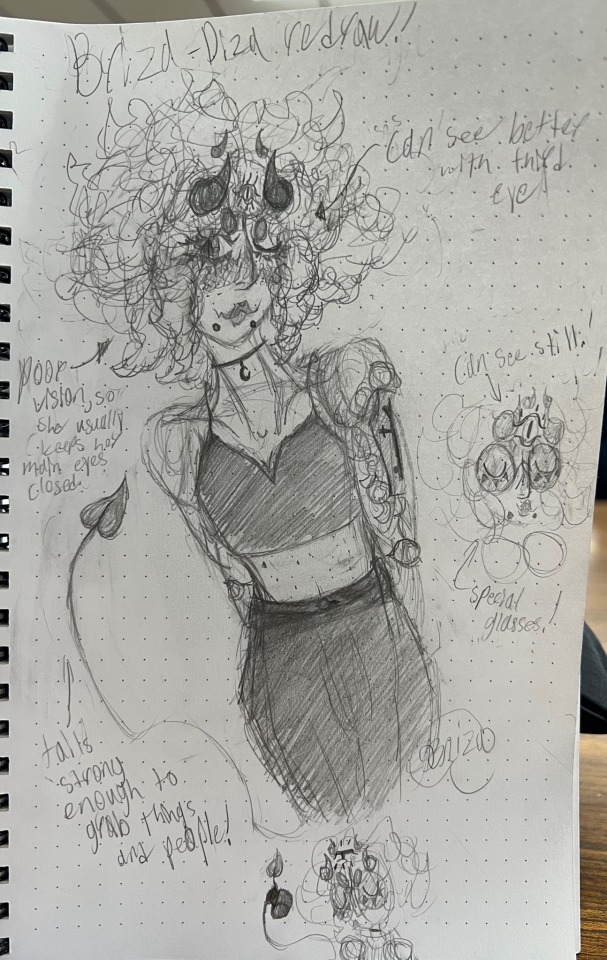
#Briz says a silly#my drawin#dizzybrizzy#Briza-Diza#sona stuff#Yes#This is who you should imagine when I’m creating chaos#ITS HER DOING IT!
2 notes
·
View notes
Text
//I DID SOME EDITTING YALL!!
Hi, Hello, Welcome to the Ethereal Detective Agency!! [DISTANT EXPLOSION]..Ignore that-
Names Drizza S. Cresil you can call me Drizza, or even Dizzy if you so please! Don’t ask how I got on this sight- I don’t need any and all of Hell sniffing around..
But If you have case- whether it’s demon, angel- or ethereal based- I’m one of the best to go too! So please..I’m in desperate need of work-
//Hi Hello, this is Briz! I decided to do a rebrand of my blog because I’ve been galavanting about just as myself! So why not embrace it! So this is my little ethereal oc that’s not quite a demon(Her words not mine even if she has horns).
Additional Info on Drizza:
Sexuality: Polysexual, Demiromantic.
Pronouns: She/her
Hobbies: Solving cases, bothering certain other ethereals[you know the ones-], being a nice and sweet person-[NO-], Drawing, and enjoying whatever human society has come up this century, fencing, botany, Acrobatics, forensic study, psychology, chemistry, Witchcraft, and Arcane Exploration and Mastery.
Origins: Unknown.
Arcane Magic Use: She prefers using arcane magic and demonic influence in said magic when defending herself or out on a job as they are more precise then human made weapons such as guns. Though she does have specific items that hone in on specific elements in some arcane spells/rituals that she uses to enhance the power!
One particular item is a sort of glove she wears that has metal bits and dark jewels in it that actually morphs into a spell charged revolver when a specific incantation is spoken.
Idea and concept of her: So my overall idea for Drizza is to make her this detective who celestial/ ethereal beings can go too confide in her to solve unsolved cases or even more so help get info out of places, people, and/or things
Many view her a little less than given she’s a demon, though she uses that bit to her advantage quite often.
The reason she is a detective is because Hell and other areas don’t have anyone in that area and she felt someone ought to be working in that department! *Especially considering she’s been investigating for years upon the fact on just why she fell….yet all the leads have been muddled ever since she started her investigation..*
l
Her Powers Include:
-Immortality
-Demonic Contract Bestowal
-Demonic/Wicked Miracles
-Curse/Arcane Inducement
-Dark Art Manipulation
-Soul collecting(Doesn’t personally like doing it- but ya do what ya gotta do)
Demonic Element Manipulation:
-Hell-Fire Manipulation
-Soul binding chains
-Demonic Arcane Spells/Rituals/Occults.
Other Powers:
-Possession
-Mental Manipulation:fear Inducement, nightmare manipulation
-Sin manipulation/Sin Encouragement “Tempting”
-Transmutation
-And much much more.
Weaknesses to her include the following:
-Holy Water
-Holy Aversion
-Exorcism
-Salt (She hates Salt Circles..)
-Angelic Beings using holy arcana
Personality: She’s very mischievous and is quite sarcastic in some senses. She can be a tad hotheaded at times but prefers to keep herself leveled and chill.
She has a very professional feel to her that she uses to show her confidence and clever word play to win over clients. More often then not she can be viewed as someone who uses their intellect and mind in combat and even just her detective work.
At her heart, she’s quite a sweetheart and will often be compassionate and empathetic in some senses-(She doesn’t like people pointing that out).
— — Profile Info because Ima credit them again just in case!:
The Profile Pic is from a picrew by @Crowesn on Tumblr, I am in no way trying to pass this off as my art or for commercial use, I just wanted to use the picrew for a profile picture and for references to what Brizzy looks like.
Link to Picrew: https://picrew.me/en/image_maker/1564386
Profile/Ref Photos for broader look on her character/A Human Disguise for Galavanting Around:
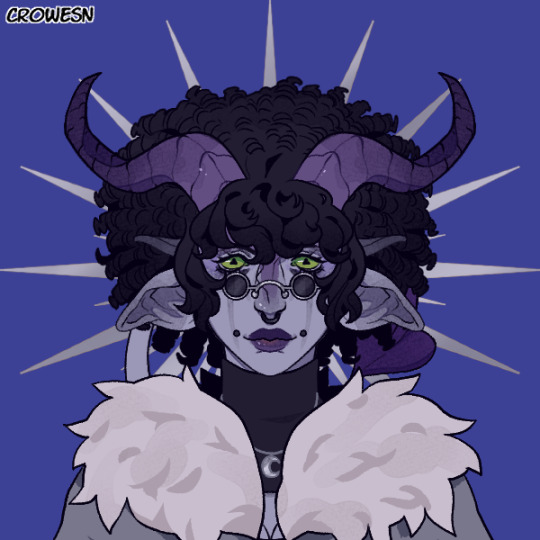
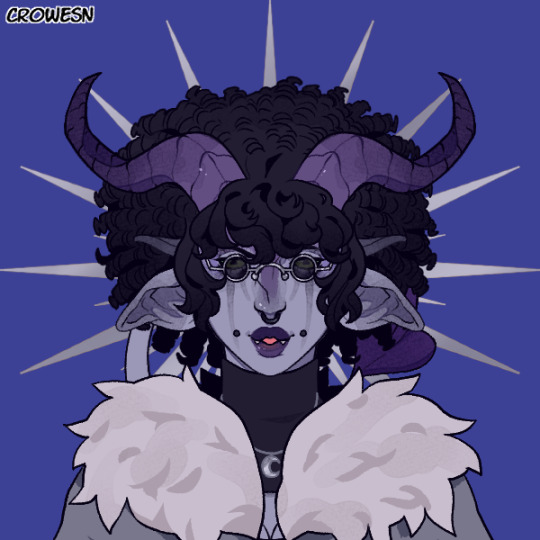
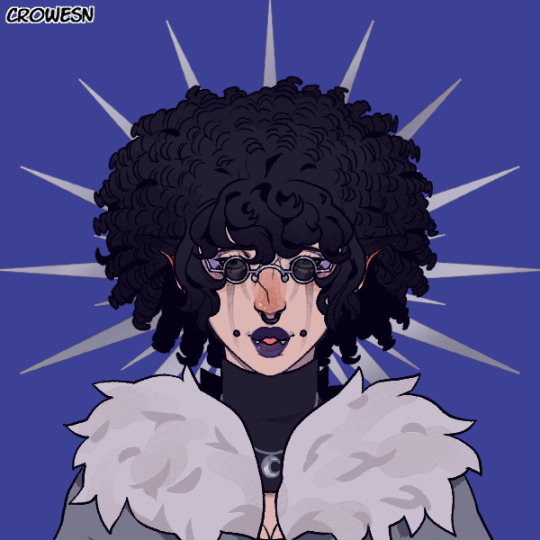
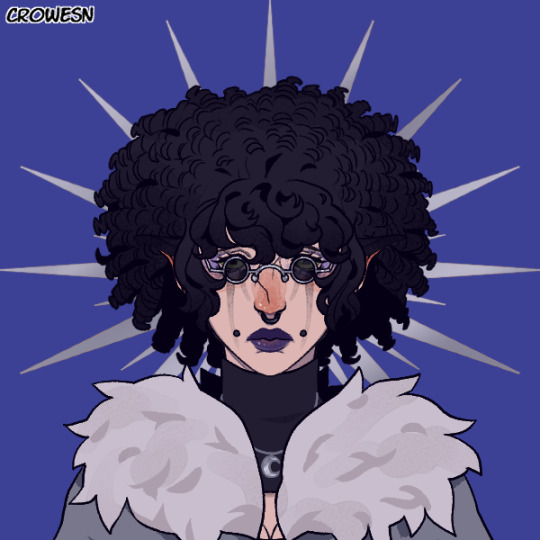
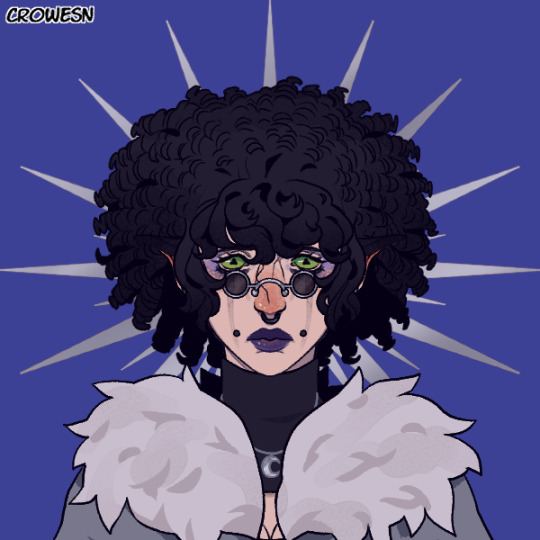
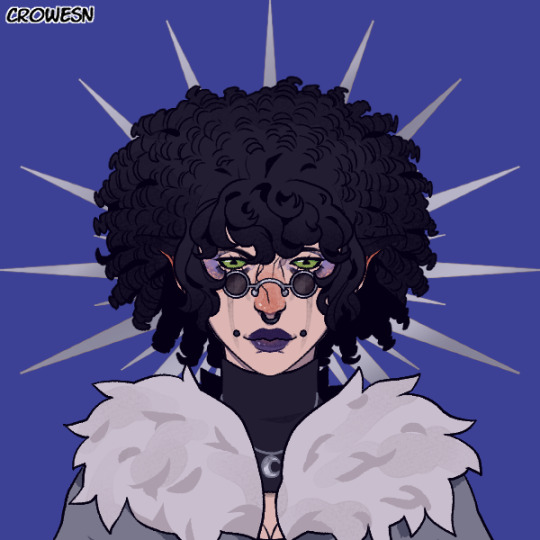
#briz says stuff#edited#drizabriza#TheDrizWhoMoots#Drizza S. Cresil#Ethereal Detective Agency#Drizza Moots#Detective Drizza S. Cresil
40 notes
·
View notes
Text
I DID A REBRAND LADS!
Hi, Hello, WELCOME TO MY BLOG!! [DISTANT EXPLOSION]
Names Briz, you can call me Brizzy, Brizadiza, or even Dizzy if you so please! Don’t ask how I got on this sight- I don’t need to many other ethereals mucking it up in here.
//Hi Hello, this is the actual Briz! I decided to do a rebrand of my blog because I’ve been galavanting about just as myself! So why not embrace it! So this is my little ethereal oc that’s not quite a demon(Her words not mine even if she has horns).
Additional Info on Briz:
Sexuality: Polysexual, Demiromantic.
Pronouns: She/her
Hobbies: invoking chaos, bothering certain other ethereals[you know the ones-], being a nice and sweet person-[NO-], Drawing, and enjoying whatever human society has come up this century.
Origins: [NO IDEA!]
— — Profile Info because Ima credit them again just in case!:
The Profile Pic is from a picrew by @Crowesn on Tumblr, I am in no way trying to pass this off as my art or for commercial use, I just wanted to use the picrew for a profile picture and for references to what Brizzy looks like.
Link to Picrew: https://picrew.me/en/image_maker/1564386
Profile/Ref Photos for broader look on her character/A Human Disguise for Galavanting Around:
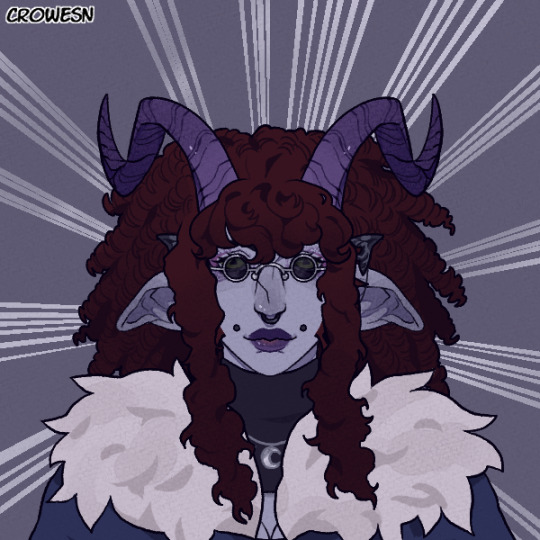
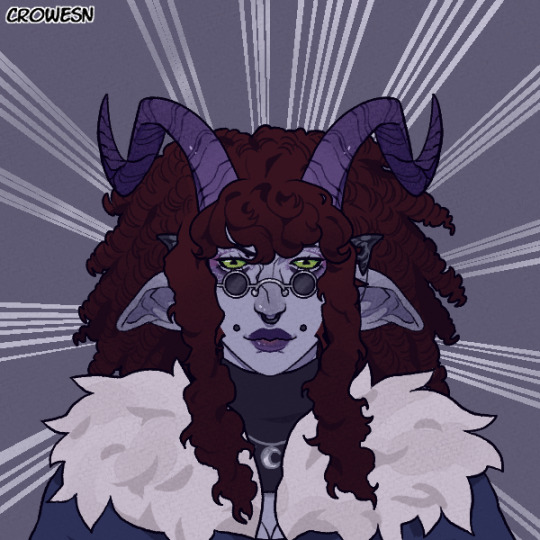
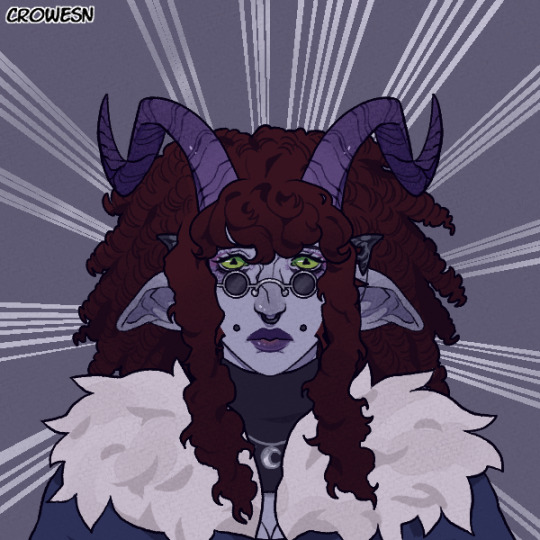
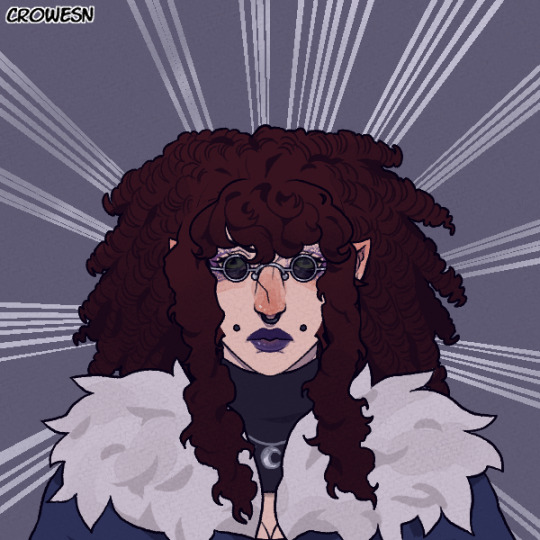
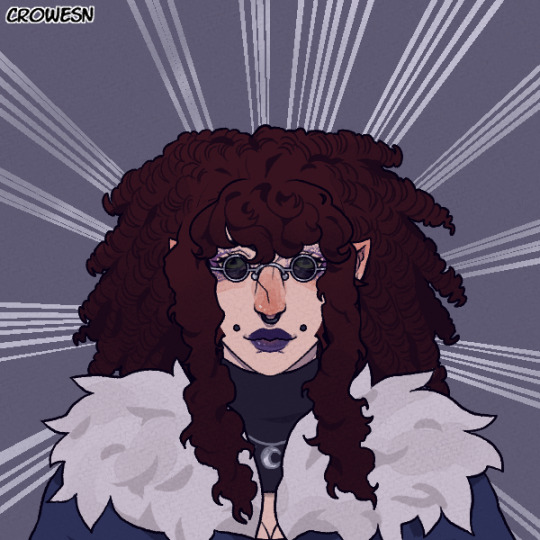
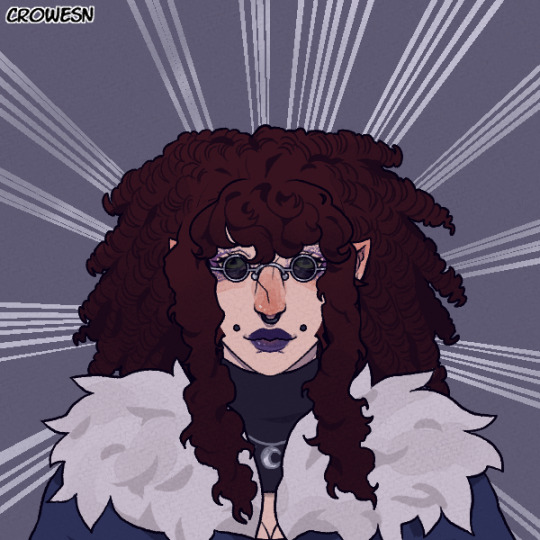
40 notes
·
View notes